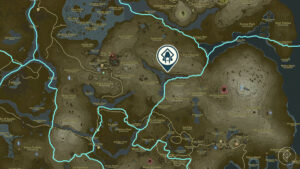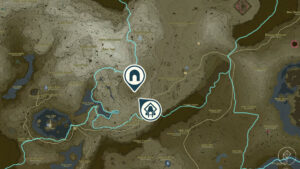
Unity Technologies, the company behind the cross-platform game engine Unity, announced a new pricing model on Tuesday — and it’s been almost universally condemned by the video game developer community on social media since the announcement went live.
Unity is widely used by AAA studios, indie developers, and everybody in between. It’s the foundation for games like Pokémon Go, Hollow Knight, Rust, and Hearthstone, among plenty others. Unity’s new pay structure ties a fee to game installs, when the Unity Runtime code is booted up on a player’s device, rather than a revenue sharing model.
“We are introducing a Unity Runtime Fee that is based upon each time a qualifying game is downloaded by an end user,” a Unity representative said in a blog post detailing the fee. “We chose this because each time a game is downloaded, the Unity Runtime is also installed. Also we believe that an initial install-based fee allows creators to keep the ongoing financial gains from player engagement, unlike a revenue share.”
There is no way Unity talked to a single developer before launching this: developing in Unity is now straight-up a financial risk for:
– subscription services
– charity bundles
– piracy
– being f2p/going f2p
– malicious installs
– giveaways— Rami Ismail (رامي) (@tha_rami) September 12, 2023
Unity’s runtime fee will be collected once a game “has passed a minimum revenue threshold in the last 12 months” and “has passed a minimum lifetime install count,” according to the blog post. Those install fees vary based on Unity pricing plans. Unity Personal and Unity Plus customers must pay $0.20 per install after reaching $200,000 of revenue in the past year and having more than 200,000 lifetime game installs. Unity Pro and Unity Enterprise users will pay $0.15 and $0.125 per install, respectively, after making $1 million in the past year and having more than 1 million lifetime game installs. (Those fees will decrease as higher thresholds are met.)
Unity said it set these numbers “to avoid impacting those who have yet to find scale, meaning they don’t need to pay the fee until they have reached significant success.” Free-to-play games will have another option, which is to use Unity’s LevelPlay service for game ads, to offset the fees.
“The developers who will be impacted are generally those who have successful games and are generating revenue way above the thresholds,” a Unity representative told Polygon. “This means that developers who are still building their business and growing the audience of their games will not pay a fee.”
Lots of game developers on social media and elsewhere don’t see it that way; one particular pain point, aside from eating up revenue, is how the model will impact subscription services like Microsoft’s Game Pass, as well as free demos, charity bundles, and “other models that have been very successful for smaller developers,” Mike Wuetherick, chief technology officer at Blinkmoon, told Polygon. Wuetherick and Blinkmoon just changed engines from Unreal to Unity for the company’s new project; Tuesday’s news means pausing the project until more information is available.
“The only good news is that we just started development, so we only lose a month of work by resetting,” Wuetherick said. “Without further clarification of this information by Unity, I will be forced to reset and switch to Unreal. We are a small developer, and having such a large financial uncertainty hanging over our head basically guarantees that we will switch back for this and all future games we create.”
Wuetherick explained that the genre Blinkmoon is working in “is dependent on low price point per game with large numbers of installs” and that the changes risk eating up a “massive” amount of revenue. “It is extremely unclear how Unity will track installs,” Wuetherick said. “In general the uncertainty about what this will cost in a given month makes the decision to use Unity extremely risky.”
Newfangled Games CEO and co-founder Henry Hoffman is working on a game called Paper Trail, expected out in 2024. The demo is currently available for download, but when Unity’s pricing change goes live, it could cost the studio. Newfangled Games was started specifically to work with subscription services like Netflix Games, Apple Arcade, and Game Pass, Hoffman told Polygon, a strategy that helps “derisk” development for a small team.
“As a small team, these licensing deals afford us the financial stability needed to build a sustainable longterm studio — but it means we may see millions of downloads with no longtail revenue,” Hoffman said. “This new Unity pricing model makes this completely unviable, and would most likely mean us changing engines completely longer term.”
It will impact everyone, even gamers. Things like charity bundles, piracy, malicious installing, publisher deals, re-installing, DRM, demos, trials, preservation of games, prologue games… it’s all on the table.
— Kenney (@KenneyNL) September 12, 2023
Paper Trail has been in development for four years, and its licensing deals were made quite a while ago and “used to fund further development,” Hoffman said. “It’s entirely possible that we end up owing Unity significant pay per install fees, despite revenue threshold being used to fund development, and new installs not generating any new revenue,” he said. Developers with games on Xbox Game Pass, which has millions of subscribers, face a similar issue.
A Unity representative told Polygon that the “installation and initialization of a game via streaming or web browser is considered an install.” They continued: “We leverage our own proprietary model, and while PC and console install data is less publicly reported. Our data model will invoice a fee to cover all platforms. With any program or product launch we will refine this overtime and subject to change in the future. Those approached by Unity will submit proof of installs on those platforms.” The fee, the rep said, does not apply for installs from charity games or bundles.
Studio Pixel Punk co-founder and Unsighted developer Tiani Pixel told Polygon that counting installs is hard — “the numbers are rarely precise,” she said. Counting means privacy issues for players, and added work for developers to implement digital rights management (DRM) where they might not have otherwise. “Will indies be forced to add such DRMs on their games so they can track the installs?” she asked. “Again, Unity does not make it clear.”
Studio Pixel Punk supports DRM-free games on sites like GOG, which means the player can have as many copies of the game as they want. “With this new policy, we might get penalized for such distributions of our games,” Pixel said. “Not to mention piracy (and we don’t fault the pirates, especially living in Brazil, where a lot of people can’t afford games), this might force a situation in which pirated copies start hurting small devs.”
These developers aren’t alone: People across social media are expressing concerns about the fees and a perceived lack of clarity in Unity’s original announcement. What happens when a game is installed and played, if it’s downloaded without a purchase? Several developers have mentioned the danger of a malicious install campaign — a progression from a review bomb, but designed for financial impact.
“It’s not rare to see stories from marginalized devs getting review-bombed and harassed on social media,” Pixel said. “Depending on how this policy is implemented, people could do a sort of ‘install bomb’ of a game, and suddenly your studio gets in debt with Unity. These might sound like unrealistic situations, but stuff like this happens.”
She continued: “And Unity was extremely vague in their wording, so there isn’t much that we can do outside of expecting the worst, especially when it concerns our livelihood.”
The Unity representative said that the company has fraud detection in place for its ads technology that it can use as a “starting point” to tackle the problem of malicious installs. “We recognize that users will have concerns about this and we will make available a process for them to submit their concerns to our fraud compliance team,” the rep said. However, they added that “each new install, per device, counts towards the threshold.” To put it simply: If you have to uninstall a game to make room for another, and then you reinstall it later, that’ll result in two instances of the fee for the developer.
Update: This story has been updated with comments from a Unity spokesperson, as well as comments from Studio Pixel Punk’s Tiani Pixel.
- SEO Powered Content & PR Distribution. Get Amplified Today.
- PlatoData.Network Vertical Generative Ai. Empower Yourself. Access Here.
- PlatoAiStream. Web3 Intelligence. Knowledge Amplified. Access Here.
- PlatoESG. Automotive / EVs, Carbon, CleanTech, Energy, Environment, Solar, Waste Management. Access Here.
- PlatoHealth. Biotech and Clinical Trials Intelligence. Access Here.
- ChartPrime. Elevate your Trading Game with ChartPrime. Access Here.
- BlockOffsets. Modernizing Environmental Offset Ownership. Access Here.
- Source: https://www.polygon.com/23870247/unity-engine-pricing-model-install-fee
- :has
- :is
- :not
- :where
- $1 million
- $UP
- 000
- 1
- 11
- 12
- 125
- 15%
- 20
- 200
- 2024
- 7
- 8
- a
- AAA
- About
- above
- According
- across
- add
- added
- Ads
- After
- ago
- All
- allows
- almost
- alone
- also
- among
- amount
- an
- and
- Announcement
- Another
- any
- Apple
- Apply
- Arcade
- ARE
- AS
- aside
- At
- audience
- available
- avoid
- back
- based
- Basically
- BE
- because
- been
- before
- behind
- being
- believe
- between
- Big
- Blog
- bomb
- Brazil
- browser
- build
- Building
- bundles
- business
- but
- by
- called
- Campaign
- CAN
- ceo
- change
- changed
- Changes
- changing
- Charity
- chief
- chief technology officer
- chose
- clarity
- clear
- Co-founder
- code
- comments
- community
- company
- Company’s
- completely
- compliance
- Concerns
- Condemned
- considered
- Console
- continued
- copies
- Cost
- could
- counting
- cover
- create
- creators
- cross-platform
- Currently
- Customers
- DANGER
- data
- Deals
- Debt
- decision
- decrease
- Demo
- Demos
- dependent
- designed
- Despite
- Detailing
- Detection
- Developer
- developers
- developing
- Development
- device
- Devs
- digital
- digital rights
- distributions
- do
- does
- Dont
- download
- downloads
- each
- elsewhere
- end
- engagement
- Engine
- Engines
- Enterprise
- entirely
- especially
- Even
- everybody
- everyone
- expected
- expecting
- explained
- extremely
- Face
- fee
- Fees
- financial
- financial stability
- Find
- For
- Force
- Foundation
- four
- fraud
- fraud detection
- Free
- from
- fund
- further
- further development
- future
- Gains
- game
- game engine
- Gamers
- Games
- General
- generally
- generating
- genre
- get
- getting
- given
- Goes
- gog
- good
- Growing
- guarantees
- happens
- Hard
- Have
- having
- he
- head
- helps
- henry
- higher
- How
- However
- HTTPS
- i
- if
- Impact
- impacted
- impacting
- implement
- implemented
- in
- Indie
- Indies
- information
- initial
- install
- installing
- introducing
- issue
- issues
- IT
- ITS
- jpg
- just
- Keep
- Lack
- large
- Last
- later
- launch
- launching
- less
- Leverage
- Licensing
- lifetime
- like
- likely
- live
- living
- longer
- longterm
- lose
- Lot
- Low
- made
- make
- MAKES
- Making
- management
- many
- May..
- mean
- meaning
- means
- Media
- mention
- mentioned
- met
- might
- mike
- million
- millions
- minimum
- model
- models
- Month
- more
- most
- much
- must
- Need
- needed
- Netflix
- New
- new policy
- news
- no
- None
- now
- numbers
- of
- Officer
- offset
- on
- once
- ONE
- ongoing
- only
- Option
- or
- original
- Others
- otherwise
- our
- out
- outside
- over
- own
- Pain
- particular
- pass
- passed
- past
- Pay
- PC
- penalized
- People
- per
- perceived
- personal
- Piracy
- Pirates
- Pixel
- Place
- plans
- Platforms
- plato
- Plato Data Intelligence
- PlatoData
- played
- player
- players
- Plenty
- plus
- Point
- policy
- Polygon
- possible
- Post
- precise
- preservation
- price
- pricing
- pricing model
- privacy
- Pro
- Problem
- process
- Product
- product launch
- Program
- progression
- project
- Prologue
- proof
- proprietary
- publicly
- publisher
- purchase
- put
- Puts
- qualifying
- RAMI
- RARE
- rarely
- rather
- reached
- reaching
- recognize
- refine
- Reported
- representative
- respectively
- result
- revenue
- review
- rights
- Risk
- Risky
- Room
- s
- Said
- say
- Scale
- see
- service
- Services
- set
- several
- Share
- sharing
- she
- significant
- similar
- simply
- since
- single
- Sites
- situation
- situations
- small
- smaller
- So
- Social
- social media
- Sound
- specifically
- spokesperson
- Stability
- start
- started
- Still
- Stories
- Story
- Strategy
- streaming
- structure
- studio
- studios
- subject
- submit
- subscribers
- subscription
- subscription services
- success
- successful
- such
- Supports
- sustainable
- Switch
- table
- tackle
- team
- Technologies
- Technology
- term
- than
- that
- The
- The Future
- their
- Them
- then
- There.
- These
- they
- things
- this
- those
- threshold
- Ties
- time
- to
- told
- towards
- track
- trials
- two
- Uncertainty
- unity
- universally
- unlike
- Unreal
- until
- updated
- upon
- us
- use
- used
- User
- users
- very
- via
- Video
- video game
- want
- was
- Way..
- we
- web
- web browser
- WELL
- went
- were
- What
- when
- which
- while
- WHO
- widely
- will
- with
- without
- wording
- Work
- working
- Worst
- would
- xbox
- year
- years
- yet
- you
- Your
- zephyrnet










